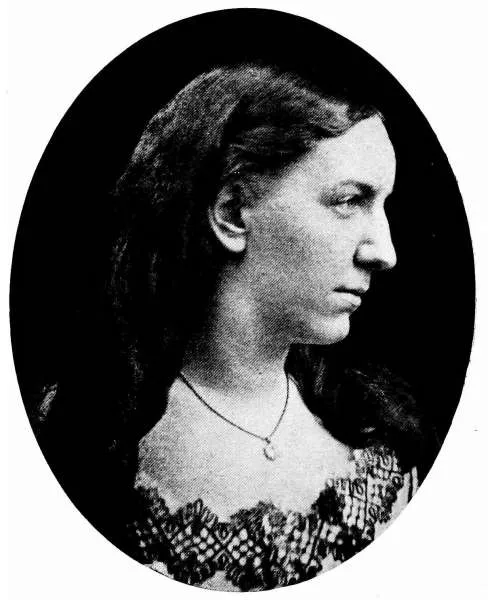
Timeline
Title
Country/Nationality
Ouida
Ouida was the pseudonym of the English novelist Maria Louise Ramé (although she preferred to be known as Marie Louise de la Ramée). During her career, Ouida wrote more than 40 novels, as well as short stories, children's books and essays. Moderately successful, she lived a life of luxury, entertaining many of the literary figures of the day. Under Two Flags, one of her most famous novels, described the British in Algeria. It expressed sympathy for the French colonists—with whom Ouida deeply identified—and, to some extent, the Arabs. The novel was adapted for the stage, and was filmed six times. Her novel A Dog of Flanders is considered a children's classic in much of Asia. The American author Jack London cited her novel Signa, as one of the reasons for his literary success. Her lavish lifestyle eventually led her to penury, and her works were put up for auction to pay her debts. She died in Italy from pneumonia. Soon after her death, her friends organized a public subscription in Bury St Edmunds, where they had a fountain for horses and dogs installed in her name.
Maria Louise Ramé was born at Bury St Edmunds, England. Her mother, Susan Sutton, was a wine merchant's daughter; her father was from France. She derived her pen name from her own childish pronunciation of her given name "Louise".
She moved into the Langham Hotel, London in 1867. There, according to the hotel promotional materials, she wrote in bed, by candlelight, with the curtains drawn to keep out daylight and surrounded by purple flowers. She ran up huge hotel and florists bills of up to 200 pounds per week and commanded soirees that included soldiers, politicians, literary lights (including Oscar Wilde, Algernon Swinburne, Robert Browning and Wilkie Collins), and artists (including John Millais). Many of her stories and characters were based upon people she invited to her salons at The Langham. Ouida was described by William Allingham in his diary of 1872 as of short stature, with a "sinister, clever face" and with a "voice like a carving knife."
For many years Ouida lived in London, but about 1871 she moved to Italy. In 1874, she settled permanently with her mother in Florence, and there long pursued her work as a novelist. At first she rented an 'apartment' at the Palazzo Vagnonville. Later she removed to the Villa Farinola at Scandicci, south of Bellosguardo, three miles from Florence, where she lived in great style, entertained largely, collected objets d'art, dressed expensively but not tastefully, drove good horses, and kept many dogs, to which she was deeply attached. She lived in Bagni di Lucca for a period, where there is a commemorative plaque on the outside wall. She declared that she never received from her publishers more than £1600. for any one novel, but that she found America 'a mine of wealth.' In 'The Massarenes' (1897) she gave a lurid picture of the parvenu millionaire in smart London society. This book was greatly prized by Ouida, and was very successful in terms of sales. Thenceforth she chiefly wrote for the leading magazines essays on social questions or literary criticisms, which were not remunerative As before, she used her locations as inspiration for the setting and characters in her novels. The British and American colony in Florence was satirised in her novel, Friendship (1878) Ouida considered herself a serious artist. She was inspired by Byron in particular, and was interested in other artists of all kinds. Sympathetic descriptions of tragic painters and singers occurred in her later novels. Her work often combines romanticism with social criticism. In her novel, Puck, a talking dog narrates his views on society. Views and Opinions includes essays in her own voice on a variety of social topics. She was an animal lover and rescuer, and at times owned as many as thirty dogs.
Although successful, she did not manage her money well. A civil list pension of £150 a year was offered to her by the prime minister, Sir Henry Campbell-Bannerman, on the application of Alfred Austin, George Wyndham, and Walburga, Lady Paget, which she reluctantly accepted after request by her friend, Lady Howard of Glossop, on 16 July 1906.
She continued to live in Italy until her death on 25 January 1908, at 70 Via Zanardelli, Viareggio, of pneumonia. She is buried in the English Cemetery in Bagni di Lucca, Italy.
Books by Ouida

A Dog of Flanders
A Dog of Flanders is an 1872 novel by English author Marie Louise de la Ramée published with her pseudonym "Ouida". It is about a Flemish boy named Nello and his dog, Patrasche, and is set in Antwerp.

branche de lilas
A story of unrequited love between a young, orphaned actor and a beautiful young woman. The actor is sensitive and vulnerable, while the woman is playful and capricious. Despite his feelings for her, the woman does not return his affections. The stor...

Good Dog Book
This collection of adult stories and poems explores the complex and often unexpected relationships between humans and their canine companions. John Muir's writing captures the joys, sorrows, and adventures shared in these partnerships, often through...

Deux petits sabots
A naive and innocent young girl named Bébée is betrayed by a man in this heart-wrenching story. Bébée's youthful innocence is shattered after a man approaches her while she is selling flowers. The encounter has a life-changing and heartbreaking impac...

Massarenes
Set in the late 19th century, *Massarenes* delves into the world of the newly wealthy, specifically the Massarene family. Their relentless pursuit of social acceptance and the intricacies of navigating high society form the crux of the narrative. Dri...